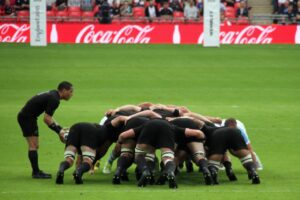
Otautahi – Most players and the wider public have a real desire to keep the All Blacks entirely New Zealand-owned.
The sum of New Zealand rugby will forever be 12.5 percent smaller if it sells that stake to US private equity firm Silver Lake.
The US company is offering $387.5 million for that slice. NZ Rugby wants the deal to go ahead but is yet to get the support it needs from the Rugby Players’ Association.
So why shouldn’t NZR sell 12.5 percent of its stake to Silver Lake? The problem is the public does not really know the NZR financial position or structure and different reports filter out from different people, so it is hard for some to know who to believe.
Former All Blacks and Crusaders captain and Canterbury coach Reuben Thorne says he has some personal views around long term outcome.
“The major issue with NZ Rugby selling 12.5 percent of its commercial arm to Silver Lake is the uncertainty around the long term implications.
“A short term cash injection could lead to long term problems with governance and profit sharing. Most of us as former players and the wider public are not privy to the finer details of the agreement, so it is difficult to be completely assured that this is entirely in the best long term interests of NZ rugby.
“NZ Rugby needs money at all levels for the game to survive. This appears at first glance to be a viable option that will provide an immediate cash injection as well as potential long term growth and sustainability if managed well.”
NZ Rugby has struggled to balance its books in the last 14 years since Thorne retired. But, if still alive, the grumbles from the likes of Colin Meads, Brian Lochore and DJ Graham would be echoed around the country. The administrators of NZ Rugby are just the guardians of the game.
Thorne says he cannot speak for Canterbury, the Crusaders or NZ Rugby but the financial model in Aotearoa struggles because it has such a small market with relatively small stadiums that do not generate enough income to sustain the game.
“This is the same for the ABs as well as the Super and provincial teams. It is not sustainable in its current format. The big carrot for NZR to partner with Silver Lake is their supposed ability to grow the game/audience and reach a huge untapped support base.
“NZR relies heavily on the All Blacks to generate income through sponsorship, tv rights and international gates.

“This is then expected to filter down and support the game at all levels. If the NZR can leverage more income by reaching a wider base of international supporters in new markets, as proposed by Silver Lake, then, it could become financially sustainable.
“The floating of a small percentage of NZR on the stock exchange, so Kiwi companies and the public could buy into it is an option.
“There seems to be a real desire from the players and the public to keep the All Blacks entirely New Zealand owned. This has obvious social benefits such as connection to the team and national pride.
“Corporate benefits probably are that ownership and control remain in New Zealand and this may be more attractive to local sponsors. It may also motivate a suitable New Zealand company to provide the same or similar level of support and technology to reach the untapped markets that are out there.”
For further information contact Make Lemonade NZ editor-in-chief Kip Brook on 0275 030188



